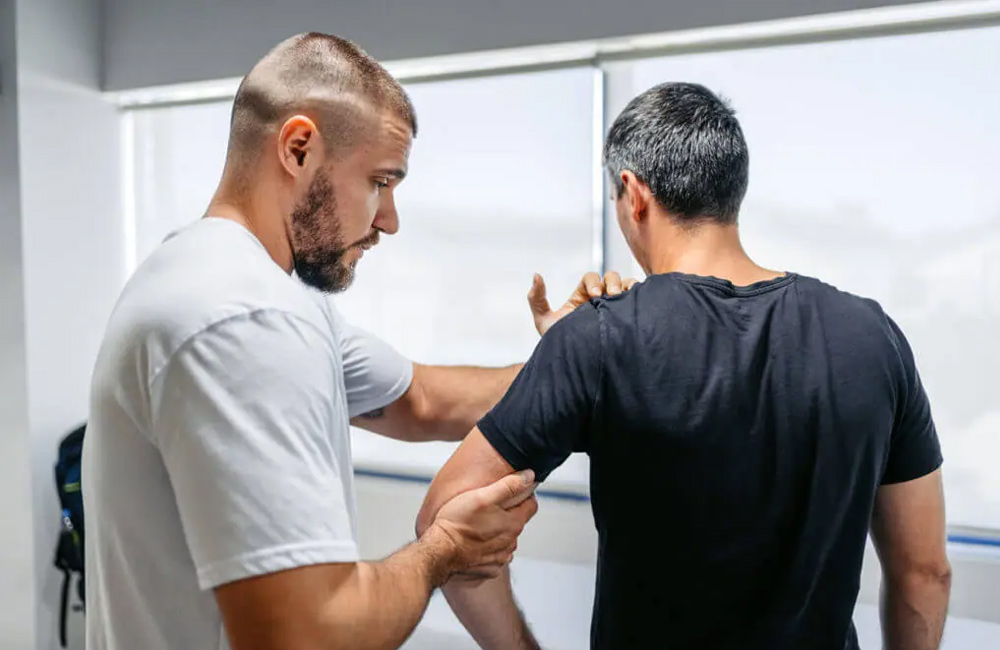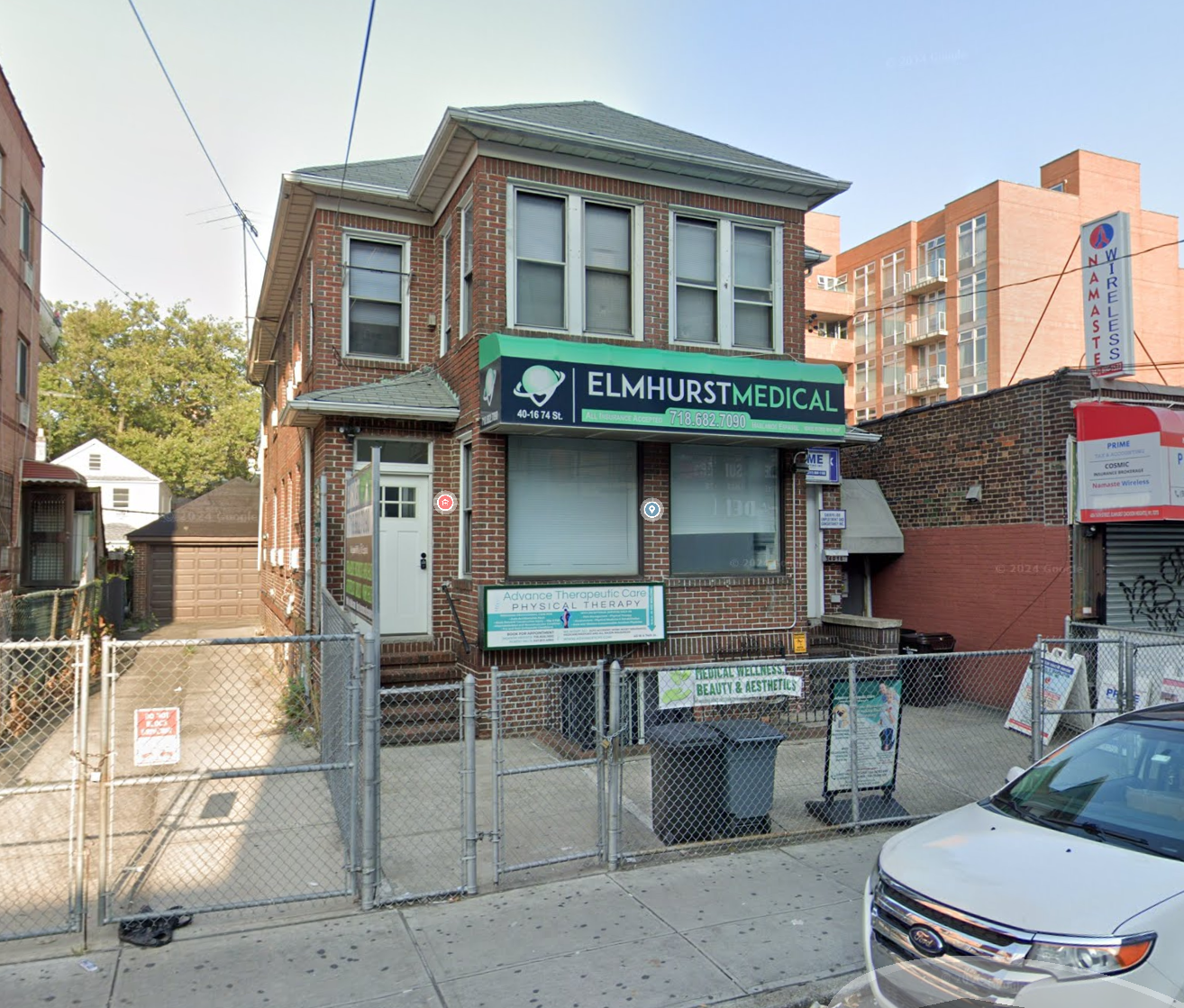
Chronic shoulder pain can significantly affect your daily activities, limiting your ability to perform tasks involving lifting or moving your arm. Understanding the causes behind this discomfort and exploring effective solutions are crucial for managing and alleviating the pain. This article will delve into common shoulder problems such as rotator cuff tears, shoulder dislocations, and frozen shoulders and discuss how treatments, including those available through InjuryDocsNow, can help.
Understanding the Shoulder Joint
The shoulder is a complex ball-and-socket joint where the upper arm bone (humerus) fits into the shoulder blade’s (scapula) socket. This joint’s functionality is supported by a group of muscles and tendons known as the rotator cuff. This setup allows the shoulder a wide range of motion, enabling movements in almost every direction.

Common Causes of Chronic Shoulder Pain
-
Rotator Cuff Tears
This injury involves a tear in the muscles and tendons that stabilize the shoulder joint. It can result from acute injury or gradual wear and tear, leading to pain and swelling that worsens with movement. Rotator cuff tears are particularly prevalent among athletes and the elderly due to repetitive stress and degeneration, respectively.
-
Shoulder Dislocations
A dislocation occurs when the upper arm bone pops out of the shoulder blade’s socket. This can cause intense pain and swelling and significantly impact the shoulder’s stability and function. Shoulder dislocations are most often caused by significant force or trauma to the shoulder area.
-
Frozen Shoulder
Also known as adhesive capsulitis, this condition is characterized by stiffness and pain in the shoulder joint. It typically develops slowly and can make it nearly impossible to move the shoulder. The exact causes of frozen shoulder are not well understood but are thought to involve inflammation and fibrotic adhesions forming within the shoulder capsule.
-
Bursitis
Inflammation of the fluid-filled sac (bursa) that cushions the shoulder joint can lead to persistent pain and swelling, especially when lifting the arm or moving the shoulder. Bursitis is often caused by repetitive movements or prolonged pressure on the shoulder.
Solutions and Treatments
-
Anti-inflammatory Drugs (NSAIDs)
These medications can help reduce inflammation and pain in the shoulder. They are often used as a first-line treatment for conditions like bursitis and mild rotator cuff injuries.
-
Physical Therapy
Engaging with a physical therapist can be crucial for rehabilitation. Therapy sessions may include exercises to strengthen the shoulder, improve flexibility, and reduce pain. Physical therapists often use techniques that focus on the rotator cuff tendons and other key areas of the shoulder.
-
Corticosteroid Injections
For severe inflammation, corticosteroids may be injected into the shoulder joint to provide quick relief from pain and swelling. However, the effects are usually temporary and should be combined with other forms of treatment.
-
Surgery
Surgical intervention may be necessary to repair the damage and restore function in cases of severe rotator cuff tears or recurrent shoulder dislocations.
-
Lifestyle Adjustments
Simple changes in daily activities can significantly impact the management of shoulder pain. Ergonomic adjustments at the workplace and home, along with proper lifting techniques, can help prevent further injury.

InjuryDocsNow: A Resource for Recovery
Finding the right medical provider is crucial for those dealing with chronic shoulder pain. InjuryDocsNow offers a network of experienced doctors specializing in the treatment of shoulder and other musculoskeletal injuries. These professionals can provide tailored treatment plans that may include physical therapy, medication management, and possibly surgical options if necessary.
High Scoring Solutions in Managing Shoulder Pain
Achieving a “high score” in managing shoulder pain involves combining effective treatments with expert guidance. Here are a few strategies to consider:
-
Consistent Physical Therapy
Regular sessions with a physical therapist can lead to significant improvements over time.
-
Proper Medication Management
Using NSAIDs responsibly and under the guidance of a healthcare provider can effectively manage pain without undue risk of side effects.
-
Regular Medical Evaluations
Ongoing assessments by healthcare professionals help adapt treatment plans as your condition improves or changes.
Charting the Path to Shoulder Pain Relief and Improved Mobility
Chronic shoulder pain requires a comprehensive approach that addresses both the symptoms and underlying causes. Whether it’s a rotator cuff tear, shoulder dislocation, or another issue, each condition has specific treatments that can alleviate pain and improve quality of life. By utilizing resources like InjuryDocsNow and adhering to a treatment plan prescribed by specialists, individuals suffering from shoulder pain can look forward to regaining mobility and returning to their daily routines with less discomfort. InjuryDocsNow remains a reliable and convenient choice for a streamlined experience in managing shoulder-related injuries and access to a variety of treatment options tailored to individual needs. Remember, the key to managing shoulder pain effectively is a combination of expert advice, appropriate exercises, and the right medical interventions.
Frequently Asked Questions:
What are some early warning signs of a potential shoulder problem?
Early warning signs include persistent stiffness, discomfort when lifting objects, a decrease in the range of motion, and a dull ache even at rest. If these symptoms are ignored, they may worsen and evolve into chronic pain.
Can shoulder pain be linked to issues in other parts of the body?
Shoulder pain can sometimes reflect problems in other areas, such as the neck or back. This is due to the interconnected nature of muscles and nerves. When diagnosing shoulder issues, it’s important to assess overall posture and physical alignment.
Are there any specific stretches recommended for easing shoulder tension?
Gentle stretches that target the upper body, such as door frame stretches, neck side bends, and arm circles, can help alleviate stress and improve flexibility. Regularly performing these can prevent stiffness and reduce pain intensity.
How does stress impact shoulder pain?
Stress can significantly exacerbate shoulder pain by causing muscles to tense up, leading to increased pain and decreased mobility. Stress management techniques such as yoga, meditation, and deep breathing exercises can be beneficial in managing shoulder pain.
What role does diet play in managing chronic shoulder pain?
A healthy diet rich in anti-inflammatory foods can help manage inflammation associated with shoulder pain. Foods like turmeric, ginger, omega-3 fatty acids, and green leafy vegetables are known to reduce inflammation.
Is acupuncture effective for treating shoulder pain?
Acupuncture can be effective for some people in managing pain, including shoulder pain. It works by stimulating certain points in the body, which can help reduce pain and promote healing. Always consult with a licensed practitioner for this type of treatment.
What should I consider before opting for shoulder surgery?
Before considering surgery, evaluate all non-invasive options, understand the potential risks and benefits, and discuss the expected recovery process with your doctor. Surgery is typically recommended only when other treatments have failed to provide relief.
Visit Injury Docs Now today to find the right doctor and get the care and support you need for both your recovery and legal success.




















































































